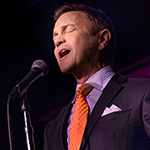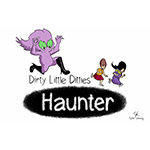Rocky
Winter Garden Theatre, NYC, March 20, 2014
Reviewed by Elizabeth Ahlfors for Cabaret Scenes
 Yo, fight fans! You have to wait until the last 20 minutes of Rocky before the great payoff, the championship fight, and it’s a rumble. With technical wizardry, New York’s Winter Garden turns into the Philadelphia Spectrum’s boxing arena, with blinding lights, looming video monitors, camera crews and an offstage chorus singing a full-volume “Eye of the Tiger.” It’s impressive, it’s heart racing, but is it enough to make Rocky a great musical?
Yo, fight fans! You have to wait until the last 20 minutes of Rocky before the great payoff, the championship fight, and it’s a rumble. With technical wizardry, New York’s Winter Garden turns into the Philadelphia Spectrum’s boxing arena, with blinding lights, looming video monitors, camera crews and an offstage chorus singing a full-volume “Eye of the Tiger.” It’s impressive, it’s heart racing, but is it enough to make Rocky a great musical?
With a book by Thomas Meehan (The Producers) and Sylvester Stallone (who wrote the 1976 Oscar-winning best film), the play has the mark of Stallone all over it. Andy Karl, (The Mystery of Edwin Drood) plays Rocky with warmth and credibility, taking on Stallone’s physical strut and throaty vocal mumble of lines lifted right out of the screenplay.
Rocky is sympathetic, a self-described “ham and egger,” a Philly club mug who just wants a chance to prove himself. To make money, he is an enforcer for a local loan shark, Gazzo (Eric Anderson). Until the shy, skittish pet-shop worker, Adrian (Margo Siebert), warms up to him, he is viewed as a local bum and the gruff club manager, Mickey (Dakin Matthews), gives his locker to another fighter. When Rocky complains, Mickey tells him, “You had the heart to become a great fighter and instead you became a leg breaker and cheap second-rate loan shark. It’s a waste of life.” And then everything changes.
The world champ, flashy Apollo Creed (Terrence Archie), a glib, charismatic character based loosely on Mohammad Ali, needs a promotional boost for his upcoming heavy-weight challenge. He decides to fight a local underdog and give a nobody a shot. It’s the American way and Rocky is the perfect choice, a fighter called the “Italian Stallion.” He’s white, Italian, a Philly palooka. What Creed doesn’t know yet is that Rocky is also a brawler and tough to buckle, but the Champ is fixed to win the fight anyway and now he will also be seen as a good guy. It’s a win-win for Creed.
At first Rocky doesn’t see it that way, but slowly he realizes that if he can go the distance with Creed, that will be his win-win. Adrian’s punk brother, Paulie (Danny Mastrogiorgio), a worker in a meat locker, lets him work out by punching sides of beef. The club manager, Mickey wants to manage him and puts Rocky to work. It’s all there, the raw eggs for breakfast, no sex before the fight, running through the pre-dawn city streets to the well-known movie theme, “Gonna Fly Now,” and triumphantly up the steps of the Philadelphia Art Museum. And finally the fight.
Directed by Alex Timbers, audience members from the first several rows of the theater are escorted on stage and a regulation ring slides into the vacated orchestra space. Apollo Creed, the “Apollo Girls” and his dazzling entourage strut down one aisle and Rocky Balboa, “The Italian Stallion” from Philly, enters modestly down the other aisle with his manager, Mickey, cut man and parasitic corner man, Paulie.
The dynamic fight begins, brutally well choreographed by Steven Hoggett and Kelly Devine. Kudos to Timbers’s thoughtful direction and to Christopher Barreca’s scenic design and lighting which effectively recreates a sports arena atmosphere, bringing the audience into the event with sound design by Peter Hylenski and ear-shattering effects by Jeremy Chernick. The hanging videos by Dan Scully and Pabla N. Molino add to the reality. Between rounds, sexy card-holders strut around the ring and by the end, both fighters are battered and punch drunk.
Music by Stephen Flaherty and Lynn Ahrens’ lyrics (Ragtime) is uninspiring. Audience applause explodes for the familiarity of Bill Conti’ s “Gonna Fly Now” while the original songs lack force and fire. Early in the show, Rocky sings “My Nose Ain’t Broken,” a theme that reappears through the show, and Adrian comes into her own with “I’m Done.”
Andy Karl, and in her Broadway debut, Margo Siebert, portray a believable couple with winning affability. Convincingly, Adrian develops her confidence and Rocky builds determination to be more than another bum from the neighborhood.
Despite the sympathetic lead performances and the breath-taking high-tech staging, Rocky is not a great musical for the ages, but it has audience appeal. Rocky went the distance.
(Photo: Andy Karl and Margo Siebert by Matthew Murphy)





